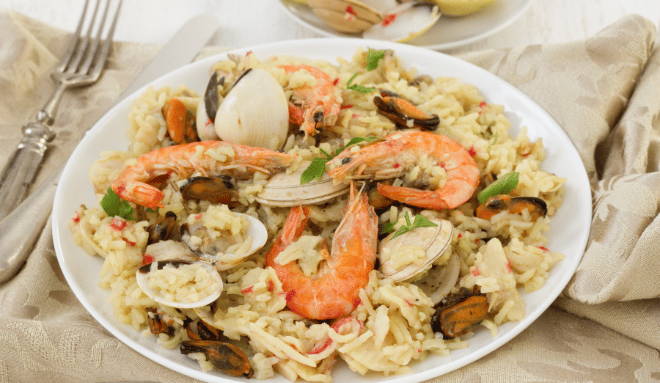Portugal is renowned for its cultural richness, diverse landscapes, and exceptional gastronomy. Portuguese cuisine is more than just food and aromas, dishes and characteristic sensations; every plate tells a story and carries a touch of creativity, transforming each meal into a true cultural journey.
Chefs Reinventing Tradition
A new generation of chefs is bringing a contemporary twist to Portuguese cuisine, blending local ingredients with the most innovative preparation and cooking techniques. In their culinary "laboratories," these creatives honour their roots while offering fresh interpretations of classic dishes, making them even more irresistible to those who savour them. These chefs demonstrate that tradition can be respected while being projected into the future, in an explosion of creativity that is gaining increasing recognition both in Portugal and abroad.
The Star Ingredients of Portuguese Cuisine
Ingredients are the soul of Portuguese gastronomy. Each product tells a story – of the sea, the land, and the people who care for its cultivation. Essential items like fresh fish, seafood, olive oil, bread, aromatic herbs, and sea salt are staples at the table and key to creating dishes that showcase the best of the country. It’s this deep connection to nature and the land that makes Portuguese food so special. Every flavour brings a piece of what is produced from the north to the south and the islands.

The Sea on Your Plate: Fish and Seafood
With an extensive and rich Atlantic coastline, Portugal is famous for its fish and seafood. Whether it’s a simple yet refined grilled fish dish or a cataplana filled with fresh ingredients, the secret always lies in the quality of the produce and the artisanal methods used in its preparation. The sea provides the freshness and authenticity that define Portuguese gastronomy, offering dishes that capture the essence of the ocean breeze in every bite.
Liquid Gold: Portuguese Olive Oil
Portuguese olive oil, made from high-quality olives grown in vast groves, is a key ingredient in the country’s cuisine. Used in everything from salad dressings to finishing fish or meat dishes, it has a distinctive flavour and aroma. Over time, Portuguese olive oil has gained international acclaim, standing out for its consistency and its versatility in various types of cuisine. It is a product that embodies tradition and innovation in equal measure.
The Fragrance of the Land: Aromatic Herbs
The freshness of herbs often adds the finishing touch to most Portuguese dishes. Parsley, coriander, rosemary, and thyme are cultivated with a respect for the land. These herbs transform even the simplest recipes into unforgettable dishes with authentic flavours. Often picked straight from the garden or the fields, they symbolise a connection with nature. Whether in fish dishes, soups, or traditional roasts, these ingredients are indispensable for achieving the characteristic balance of Portuguese culinary flavours.
Bread and Salt: Foundations of Tradition
Alentejo bread, with its dense texture and distinctive taste, and artisanal sea salt, harvested from traditional salt pans, are two elements that symbolise the deep connection of Portuguese gastronomy to the land. Bread is more than just an accompaniment; it appears in iconic forms such as Alentejo bread, Mafra bread, Bolo Lêvedo from the Azores, and Bolo do Caco from Madeira. Meanwhile, sea salt, celebrated for its purity and quality, enhances the flavours of every dish.
Sweetening the Experience: Desserts and Fruits
Portugal’s conventual desserts are true masterpieces of culinary art. These sweet treats are a legacy of monastic creativity, where sugar and eggs were transformed into delicacies like toucinho do céu or papos de anjo. Classics such as arroz doce, leite creme, and the famous pastel de nata are more than desserts – they are moments of pure sweetness that transport you to centuries-old traditions. Alongside desserts, fruits with Protected Designation of Origin (PDO) status celebrate the authenticity of Portuguese flavours. The Algarve’s oranges, Fundão cherries, Rocha pears from the West, and Azorean pineapples are shining examples of the quality and diversity of national agriculture.
Sustainability and Modernity
Portugal has been making strides towards sharing its flavours in a more sustainable way. More and more, chefs and producers are focusing on organic and less intensive production methods, respecting nature’s cycles. Portuguese cuisine seeks a balance between modernity and the preservation of ancestral traditions, creating dishes that are as innovative as they are authentic.
Blog written by visitPortugal

